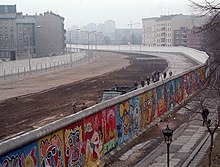Berlin’s museums, in disarray for decades, also have seen a rebirth. Prussian ruler Frederick William III envisioned the city as an artistic center and championed the creation of five museums on the river Spree, known as Museum Island. Situated in the eastern end of the city, along the Unter den Linden, the museum buildings were hollow monuments in post-world War II years. Many of the masterpieces that hung in the galleries before the war landed in Allied hands and have only recently returned to the public eye. Pergamon Museum, with its celebrated 2,000-year-old altar of the same name, and the Egyptian collection at the Bode Museum beckon the visitor inside their somewhat rough exteriors, which are slowly returning to the splendor of the last century.
But West Berlin also paid homage to ancient civilizations with its Egyptian and Antiquities museums on the edge of the city in Charlottenburg. The bust of Nefertiti and a weighty collection of Roman silver draw some half-million visitors yearly.
The sprawling Schloss Charlottenburg, just opposite the two museums, reflects the artistry of a more recent era. Works of German Romantic painters, such as Johann Friedrich Overbeck and Caspar David Friedrich, hang within the Baroque palace.
Even with the help of the S-Bahn and U-Babn, Berlin’s train systems, art aficionados might tire before seeing all 50 or so of the city’s museums.
Present-day Berlin also offers a wide variety of unusual architecture such as the Baroque and Neoclassical creations of renowned architects Andrea Schluter and Karl Friedrich. Nearby Communist structures reflect pragmatism poured in concrete.
City planners who wrestle with the integration of the East and West, classical and modem, have honed in on the renovation of Potsdammer Platz, the former commercial center in the heart of Berlin that has become an urban wasteland. Hotly debated plans for the area include glass-enclosed shopping arcades and modem high-rises.
But the serious challenge lies in adapting the city to the needs of a growing commercial and cultural center. The eventual return of the seat of government from Bonn has forced the construction of massive office buildings. A push to host the 2000 Olympic Games also demands that cafes, shops, and hotels primp and polish to entice tourists worldwide.
But for the moment, Berlin is neither pristine nor dilapidated. It is a city of quirkish charm that engages travelers, both willing and skeptical.
MUSIC
Chopin Music Festival. The 30th anniversary of this summer-long festival outside Berlin will feature the Chicago Chamber Orchestra, the Philharmonisches Rochester Frankfurt/Oderz, the Berlin Sinfoniker, and the European Community Youth Orchestra among others. Until August 28. Call 49 30 3737 1654 16.
Brandenburg Summer Concerts Classics. Ludwig Gutter, trumpet soloist from Dresden, will be one of the featured performers at this concert series outside Berlin. Until September 2. Call 49 30 817 33 64.
Potsdam at 1,000. The city of Potsdam, the former seat of Prussian royalty, celebrates its millenium with an array of summer concerts and exhibitions. The city is 15 miles southwest of Berlin and is accessible by car or bus. Call 49 30 331 2 11 00.
Classic Open Air Music Festival. The 2nd annual festival, July 15-18, will highlight centuries of classical music. At the Gendermenmarkt. Call 49 30 449 97 08.
Berlin Festival Weeks. This year’s festival will present music, theater, film, and literature on Europe’s relations with Japan in various theaters in the city. The September festival will include the New Symphony Orchestra Tokyo and the Tokyo String Quartet. Call 49 30 2 54 89-0.
Jazz-Fest Berlin. Internationally acclaimed jazz musicians will perform blues, swing, be-bop, and any other variation of jazz. Concerts are held October and November at the Philharmonie. Call 49 30 30 254 8922.
ART
20th Century America. American art in the 20th century as seen from a European perspective will be on exhibit in the Martin-Gropious-Bau until July 25. Call 49 30 324 50 78.
Karl Schmidt-Rottluff–The Painter. The once-illicit works of Expressionist and “Brucke” painter Karl Schmidt-Rottluff will be featured at the Brucke Museum until July 18. Many never-before-seen paintings from the artist’s estate are included in the collection. Call 49 30 831 20 29.
SPORTS
German Trotter Derby. One of Germany’s main horse racing events will take place August 1 at Mariendorf. Call 49 30 740 12 28.
Olympic Best. The country’s Olympic track and field contenders will compete against international rivals in this festival August 27 in the Olympic Stadium. Call 49 30 25 48 06 21.
Prig Davidoff. The thoroughbred racing event at the Hoppegarten Racetrack outside Berlin will feature the largest purse in German racing. October 3. Call 49 30 559 61 02.
